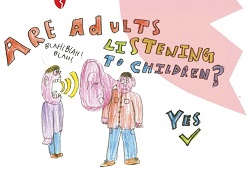On a regular basis, between the ages of 6 and 10, your child faces new challenges, new achievements and failures, subsequently leading to emotional highs and lows. In this blog we examine how to boost your child’s self-esteem.
As they become more engaged with family members, friends and teachers, they enter a phase of their life requiring them to expand their social skills. As one day ends with positive and happy feelings, the next may bring disappointment and sadness, albeit it from one incident or a culmination of many.
Various elements affect a child’s self-esteem; which contributes to a child’s sense of worth, which in turn contributes to a sense of validation and belonging. These things are also intertwined with a child’s nature, which includes their innate abilities. How a child is nurtured – their experiences with parents, teachers and peers also comes into play.
It is common for self-esteem to drop and rise in cycles, from day to day and even hourly, as a child rebuilds finds, loses and regains insight to their own self-concept. Children feeling like they are not good in a single thing tend to be emotionally weak, while those that find a solid internal sense of who they are, what they stand for, and a clear sense of the world around them –and where and how they fit –, tend to be emotionally stronger.
How to Boost Your Child’s Self-Esteem
Here are some tips for how you could help strengthen and support healthy self-esteem in your child:
1. Helping your child learn how to make and keep a friend: Healthy friendships are very important as children in this age group are becoming more social aware with peers, and thereby more sensitive about how their friends feel about them. Teach your child the social skills necessary to meet friends; i.e. how to introduce themselves, how to begin a conversation, and how to politely insert themselves into playtime activities. Shape healthy relationships with your partner and friends to set the right example: kids learn by seeing, not just listening. Encourage your child to express their concerns aloud (to you) about issues surrounding making friends. Talk to your child regarding (negative) behaviors you might observe when they are with their friends. Do this at home and not in front of their peers so as to not embarrass them. Offer suggestions so they can be themselves, be honest without being offensive, and adhere to good principles without becoming an outcast. It is important that they understand what to do, but also why they are doing it.
2. Reassure your child that he or she will be loved no matter what: A child’s self-esteem changes from situation to situation, and very often from moment to moment, according to the interaction. A parents unconditional love is a powerful motivator; a child’s sense of self-worth deepens as adults help them understand the ups and downs of life; and understanding that their worth comes from within, not externally linked to a particular achievement or failure.
3. Engage your child in house chores that help them learn about not only their abilities, but also responsibility: Children gain a sense of pride and accomplishment when offered real challenges to conquer – as opposed to mere games.
4. Provide positive response to your child’s efforts: Children are usually capable of seeing through flattery. But they are quite keen on genuine concern and interest. Make your comments specific, such as ‘I really like the wheels on this car you just drew’. Help and provide encouragement to your child with homework and show interest in their activities.
5. Give your child the respect he or she deserves: Give them a chance to share their views and opinions, consider them seriously and provide realistic feedback. A child’s self-esteem grows when they are heard by adults.
6. Encourage communication: There are many ways to communicate with your child, including direct and indirect methods. You can help open up healthy dialogue with your child with direct questions, but also presenting questions indirectly. Asking open ended questions like ‘Tell me more about the science test’ stimulates them to pick up and continue the conversation in accordance with their own thoughts. These techniques help you talk with your child naturally.
Originally posted 2015-08-12 11:45:36. Republished by Blog Post Promoter


